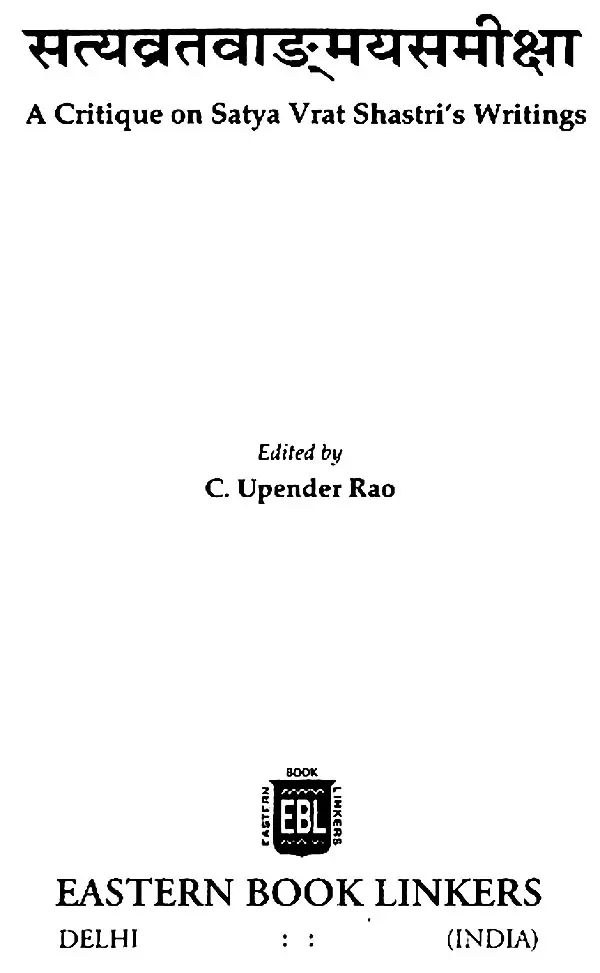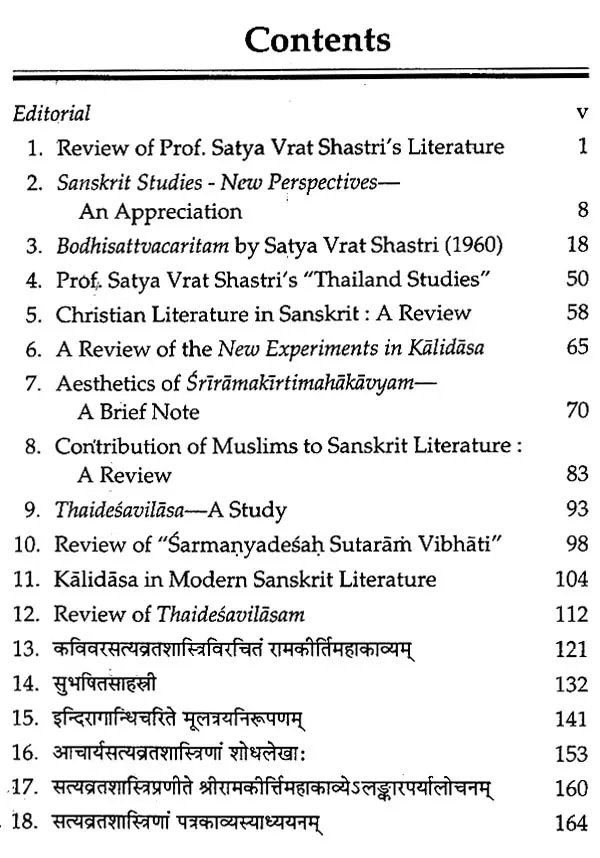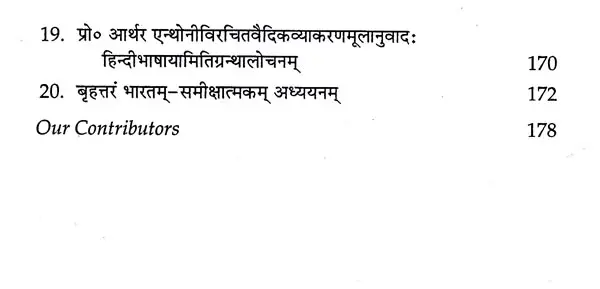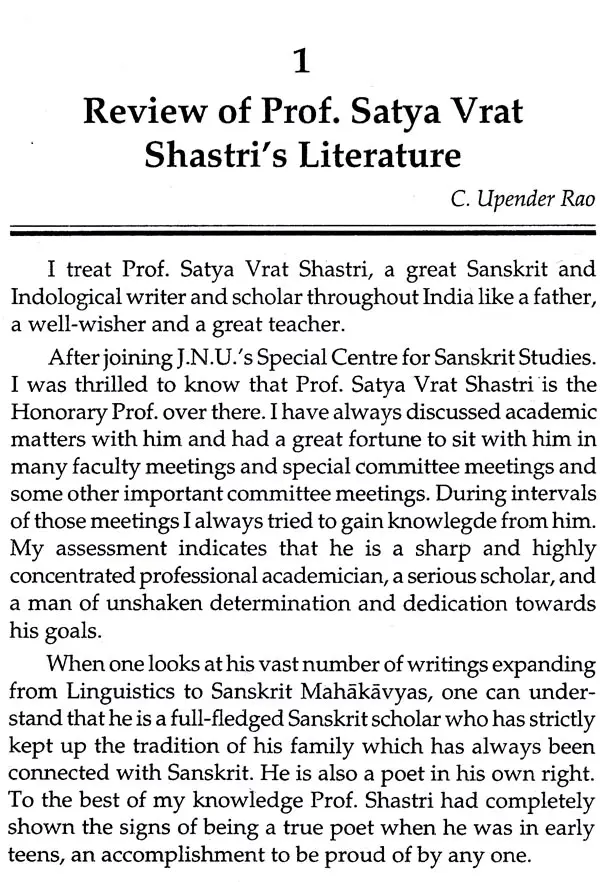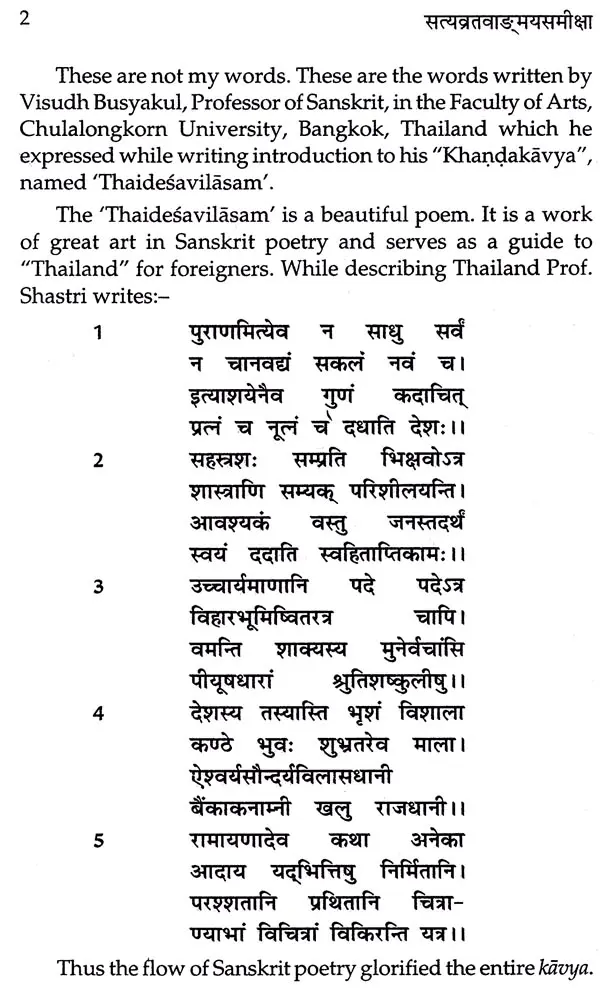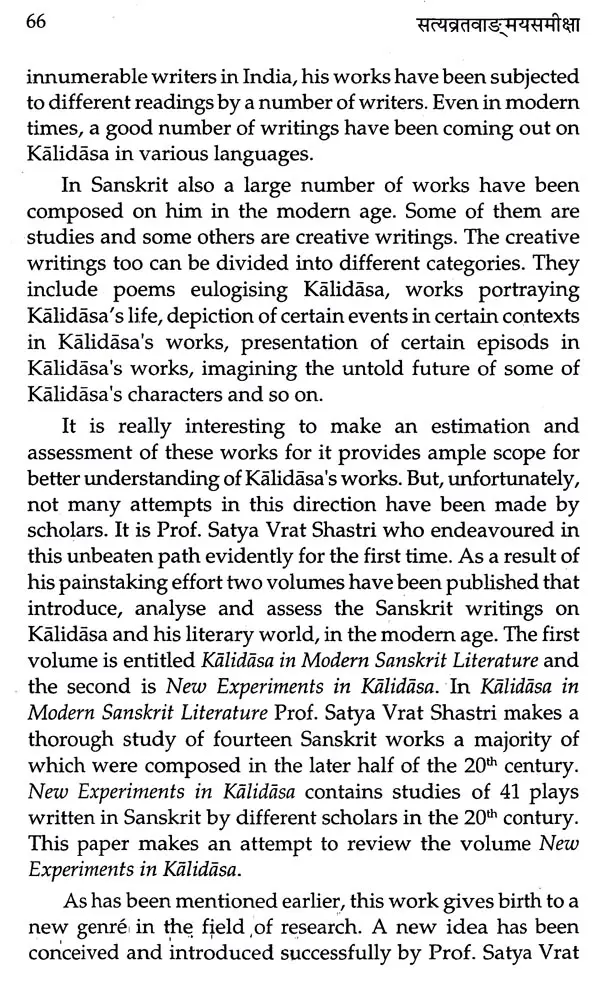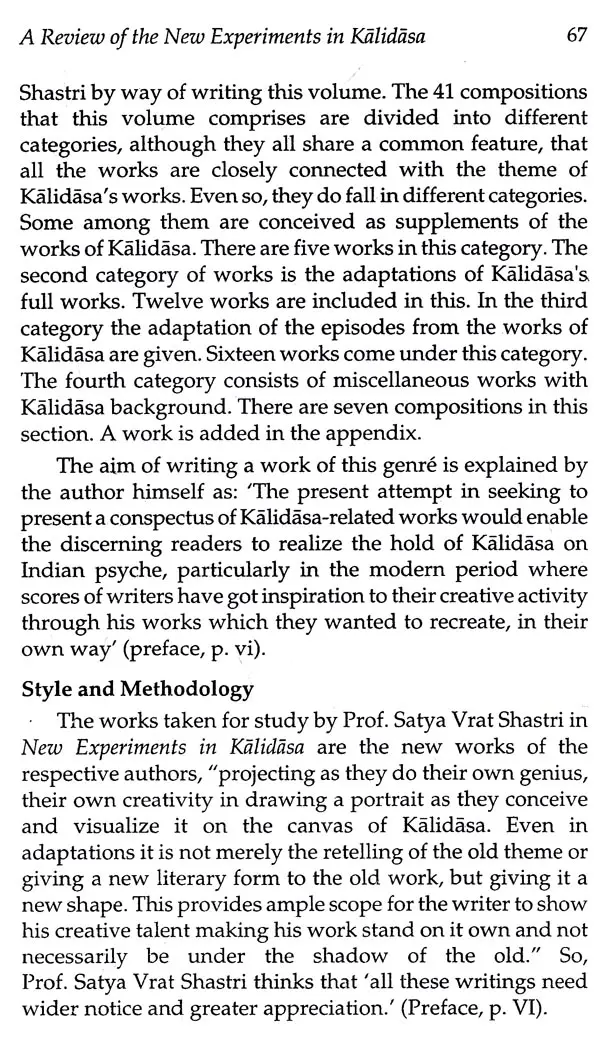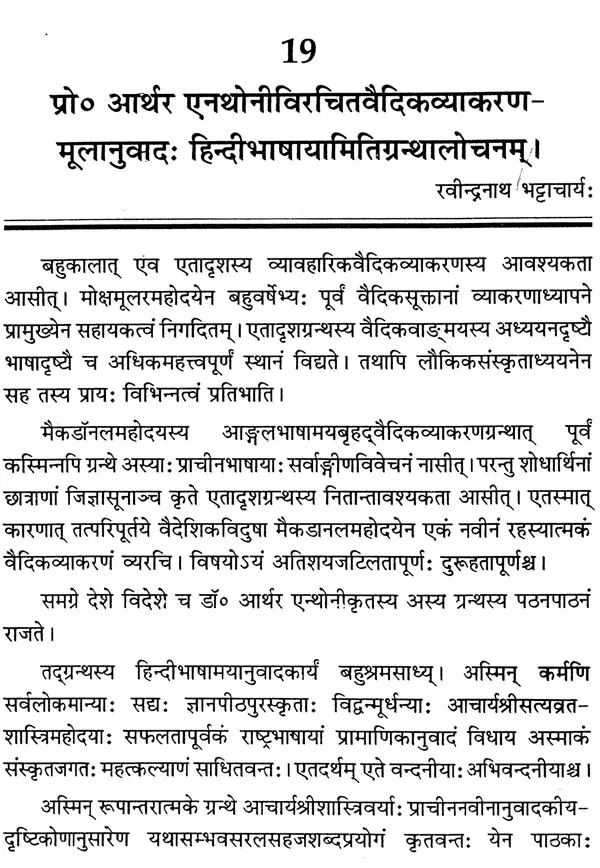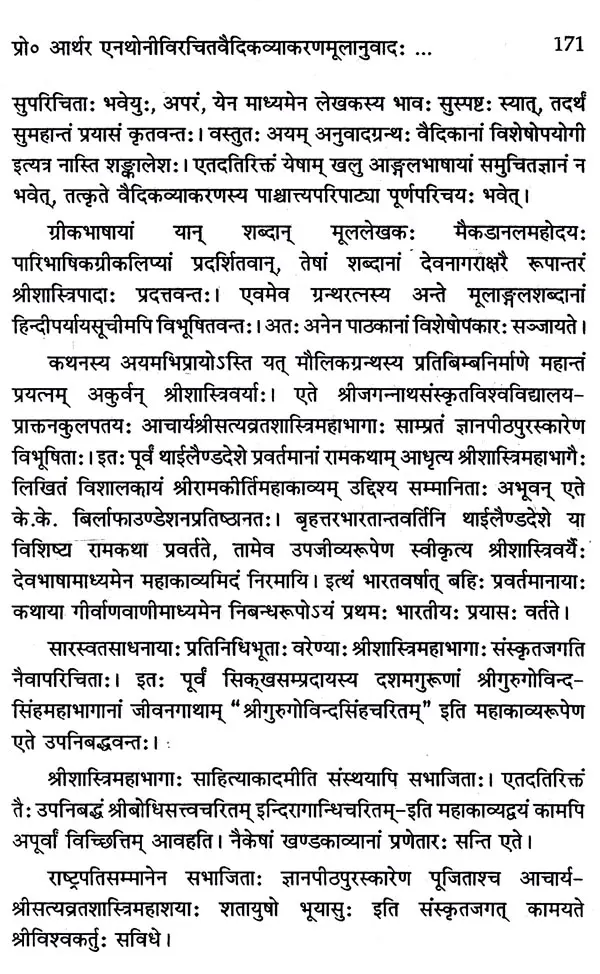
सत्यव्रतवाङ्मयसमीक्षा- A Critique on Satya Vrat Shastri's Writings
Book Specification
| Item Code: | UAN547 |
| Author: | C. Upender Rao |
| Publisher: | Eastern Book Linkers |
| Language: | Sanskrit and English |
| Edition: | 2012 |
| ISBN: | 9788178542133 |
| Pages: | 179 |
| Cover: | HARDCOVER |
| Other Details | 9.00 X 6.00 inch |
| Weight | 390 gm |
Book Description
Some forty three years have passed since then and the mighty scholar, the only recipient of the Jnanpith Award and the only Padma Bhushan awardee in Sanskrit at present, has enriched Sanskrit literature with an enormous number of other works running into thousands of pages in almost all genrés, including the ones hitherto unpractised, which could well be the envy of an institution. It is time to assess his contribution, work by work, in its entirety. That is what the present volume attempts to do. A galaxy of scholars from all parts of India have come forward with valuable studies on it which the readers would find both enlightening and elevating.
The present volume is a welcome addition to the critical appreciation of an important segment of modern Sanskrit literature.
His research papers published in various reputed journals in India. His research areas include Sanskrit literature and poetics, Early Buddhist literature and philosophy. He is interested in Teaching of Sanskrit language. He is involved in Creative writing in Sanskrit and Telugu languages. He studied Prakrit Language and Literature in Bhogilal Leherchand Institute of Indology, Delhi. He received the Awards of three Gold medals from Osmania University and Banaras Hindu University. Dr. Rao held various administrative positions. He was the head of the dept. of Sahitya in Rastriya Sanskrit Sansthan's Puri Campus and he was the 'Chairperson of center for Sanskrit studies in J.N.U., He was the State Coordinator of Non Formal Sanskrit Education, under Rashtriya Sanskrit Sansthan (Deemed University, under M.H.R.D.), Govt. of India.
Dr. C. Upender Rao was a General Fellow in I. C. P. R. He was a Research Associate in Inter University Centre for three years (U.G.C. Programme) in IUC centre situated at "Indian Institute of Advanced Study" Shimla, Himachal Pradesh. He has the 18 years of teaching experience. He Taught Prakrit language and Literature in Telugu University, Hyderabad, (Andhra Pradesh). He Taught Pali literature, Buddhist philosophy and Mahayana Buddhism in "Utkal University of Culture", Bhubaneswar, Orissa as a guest faculty. He delivered several lectures in various universities and institutions. His 7 books were published. He is the member in renowned academic bodies.
He was invited by the National university of Keiv mohyla academy, at Keiv in Ukrain and taught Sanskrit language and Buddhist philosophy. He attended international conferences in foreign countries. He taught Sanskrit in Holland, Russia, Tatarsthan and in Ukraine in connection with the academic pursuit and also delivered lectures on Sanskrit and Indian Culture in different Academic organizations of the above-mentioned countries. He received many Prizes in literary and other competitions during his student life.
Book's Contents and Sample Pages
